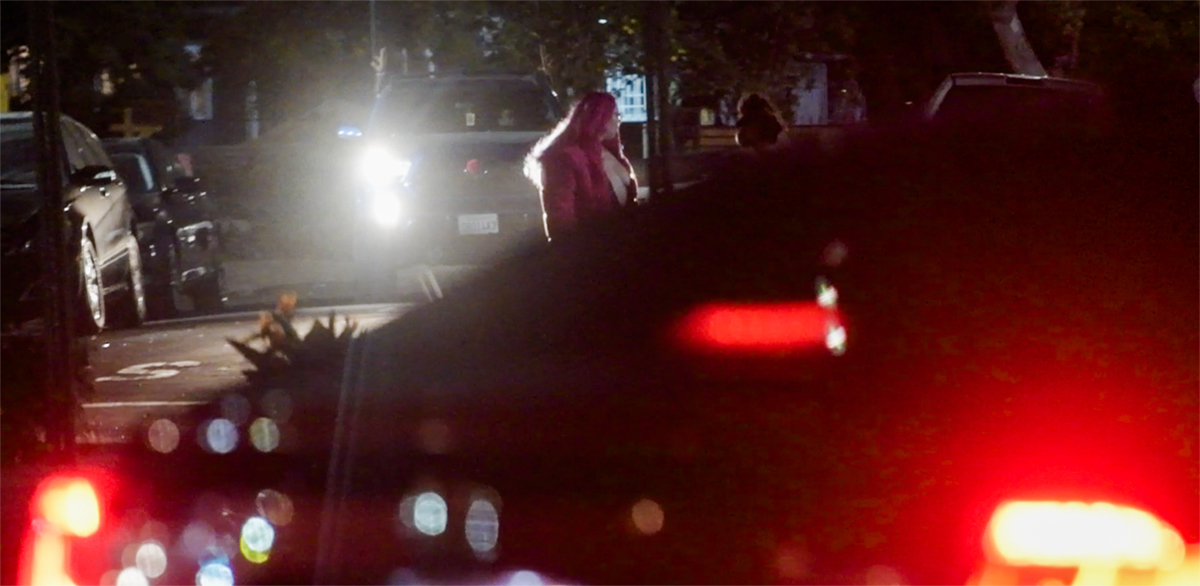More than two dozen North Long Beach residents, including school principals and business owners, told the City Council on Tuesday that they are fed up with an entrenched prostitution market that continues to disrupt life along Long Beach Boulevard.
In one example, the principal of nearby Starr King Elementary School said parents lining up to pick up their kids recently witnessed a violent altercation between a pimp and a sex worker.
In other cases, the school’s young students have seen “women half-naked and performing acts that they don’t understand,” principal Jandella Faulkner said.
Faulkner and the others spoke Tuesday in support of a push by two North Long Beach council members to revamp the city’s fight against the decades-old problem.
The boulevard, which intersects the 710 Freeway before running through the cities of Lynwood and Compton, is “one of the largest hotspots” regionally for human trafficking and prostitution, second only to Figueroa Street in Los Angeles, said District 9 Councilmember Joni Ricks-Oddie.
To address the problem, Ricks-Oddie and District 8 Councilmember Tunua Thrash-Ntuk introduced a proposal that directs the city manager to report back on current anti-prostitution efforts and look at establishing a partnership with neighboring cities, along with Los Angeles County, to develop a strategy for “cross-jurisdictional enforcement and intervention.”
Also in the proposal were requests to expand public nuisance laws to target motels that are nexuses of prostitution, establish a survivor-centered approach to help people safely escape the sex industry and enhance the tools available to crack down on motel owners who knowingly rent rooms to sex workers.
Council members unanimously voted to support the plan at Tuesday’s meeting.
The city manager’s office will now report back within 120 days with suggestions for achieving “short, medium and long-term goals” in addressing the problem, Assistant City Manager April Walker said at the meeting.
The directive is the latest in a string of initiatives the city has adopted against the sex trade that neighbors have long complained about.
In 2018, a Nuisance Motel Pilot Program aimed to draw on the success of a similar operation that targeted 26 liquor stores, creating penalties for unsightly stores like ones that did not remove graffiti or ensure adequate exterior lighting.
A year later, the program targeting six problem motels was expanded citywide and resulted in a city team tasked with receiving nuisance complaints, analyzing police data and levying fines on motel owners who did not comply.
Before highways were built, these nuisance motels were viable businesses along Long Beach Boulevard as rest stops for travelers, but they have since turned into hotbeds for illicit activities, Ricks-Oddie said.
Complicating police efforts to address “visible solicitation,” a state senate bill passed in 2022 decriminalized loitering for the purpose of prostitution, according to the proposal.
A worker at a motel in the Coolidge Triangle neighborhood, who requested anonymity over fears for her safety, said the motel often has sex workers asking to rent a room for an hour.
The near-constant presence of sex work in the area has led to fatigued business owners leaving the area and limited the ability to attract new businesses, said Councilmember Thrash-Ntuk.
It has also taken a daily toll on residents.
Lifelong North Long Beach residents David Lozano told council members that his dad was peppersprayed while attempting to take photos of a pimp to submit to police.
While working at a laundromat in the area as a teen, Lozano said he had to hide a sex worker in the back to avoid detection from her pimp.
Kathryn Renesto, mother of suspected human trafficking victim Ruthey Smith, told city council members that her 22-year-old daughter, a North Long Beach resident, was “coerced and manipulated” into becoming a sex worker before she disappeared.
While she continues to search for her daughter, Renesto is raising her granddaughter. She urged the council members to improve conditions in the area.
“I need to be able to raise her safely and not have the same thing happen again,” Renesto said.
Across the region, local leaders have also recognized this as an ongoing problem.
In February, the LA County Board of Supervisors approved a motion to study the possibility of establishing a human trafficking prevention body.

